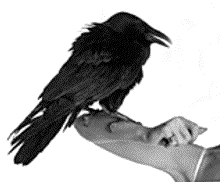Stafet-interview med
Matthias Heymann
Discipline: History of technology (with a great interest in history of science and environmental history)
Title: Dr. (associate professor of the history of technology)
Institutional affiliation: University of Aarhus
Which is the last research related book that you have read?
I read usually several books at the same time which gives me the freedom of choice: I just finished Hans Peter Duerr, Rungholt: Die Suche nach einer versunkenen Stadt (The search for a sunken city), Frankfurt 2005.
This book is exciting for several reasons.
(1) Rungholt was known as a legendary rich city at the North Sea coast, which was destroyed in a storm flood in 1362 and totally disappeared. Being interested in natural disaster in history the book certainly caught my imagination.
(2) Duerr and his students claim to have found the remnants of Rungholt in archaeological excavations in the North German wadden sea in the 1990s. It is absolutely fantastic what they all found ranging from rests of walls and skulls to coins from Ancient Rome and wood of Minoan origin.
(3) It was a great surprise to me (who once started out as a physicist), how free and competently Duerr (a cultural historian) assembled all kinds of evidence to construct fantastic theories to explain his findings.
(4) Not being an archaeologist, but being a heavily battlesome person, Duerr (almost literally) fished in foreign waters and caused enormous conflicts, which he eagerly recounts in the book (to the pleasure of the historian of science).
Is there a book that you would recommend?
Read Henrik Knudsen's dissertation Konsensus og konflikt. Organisering af den tekniske forskning in Danmark 1900-1960 (2005), which I dare say though I didn't finish it yet, is a great piece of historical work. This is true also for Maiken Lolck's book Klima, kold krig og iskerner (2006), a fascinating account of Danish contributions to climate research.
For the non Danish readers I like to recommend Paul Humphreys Extending Ourselves: Computational Science, Empiricism, and Scientific Method (2004), which deals with a fascinating new and enormously influential practice in science and technology, computer simulation. The philosopher Humphreys competently analyses his topic and its many implications. But where are the historians of science?
Which is the most interesting paper that you have read within the last couple of months?
Michel Armatte and Amy Dahan Dalmedico, "Modèles et Modélisations (1950-2000): Nouvelles pratiques, nouveaux enjeux", in: Revue d'histoire des sciences, 57 (2004), pp. 245-305. This is the only comprehensive paper on the history of computer models.
Which is the last conference you attended?
My last conference was in Munich last November. It had the title "Vom Nutzen der Wissenschaft" (On the benefits of science). I published a report on HSOZUKULT (//... Heymann).
Are there any newsletters or web-activities that you would recommend?
Aren't there already too many newsletters and web-activities to be managed? Wouldn't it be time for a new round of this interview with a new question, such as "Are there any newsletters or web-activities that you would recommend to unsubscribe?"
What is HSOZUKULT (see last question)? Researchers in history interested in what's going on in Germany may be interested in the German version of the H-Net with the beautiful name HSOZUKULT (hsozkult.geschichte.hu-berlin.de/). Here, you find actual information on jobs, projects, reviews, journals, websites of interest to historians. You can also subscribe to it and get the information mailed (//...Anmeldung).
|
Which journals would you recommend?
Centaurus. An International Journal of the History of Science and its Cultural Aspects, is one of the oldest journals in the history of science with new ambitions as the official journal of the European Society for the History of Science. Have a look and submit good papers.
Give an example of a key issue in your research area
Growing up with the "Waldsterben" my key issue became the history of environmental problems. This is not very original. But this is how I ended up in the history of science and technology.
Give an example of a common misunderstanding
When I lived in Istanbul I learned that there is no Islam as understood in western media. There are many Islams. And most of them are not dangerous at all. Islamic people manage to comply with contradicting religious and cultural rules as easily and peacefully as do Christian people in the western countries.
Would you accept a ten-day trip to the Moon?
I would prefer to enjoy 10 days at the North Sea coast.
Do you have a hero?
My children: They don't just grow up in a globalizing world and have to cope with a postmodern family. They have to live it through, moving from one country to the next and experiencing changing cities, languages and cultures as well as two homes in two foreign countries.
To whom will you relay the list of questions?
Peter Karnøe, Copenhagen Business School, who was helpful and kind when I came to Denmark for the first time.
|
